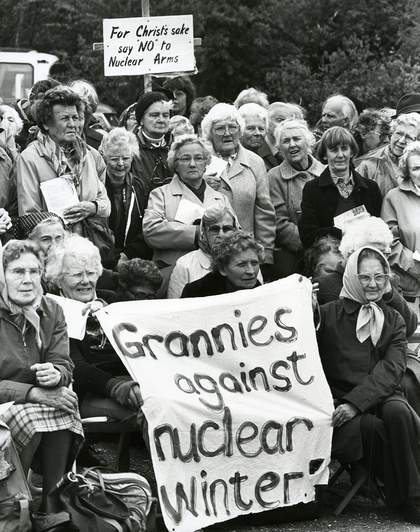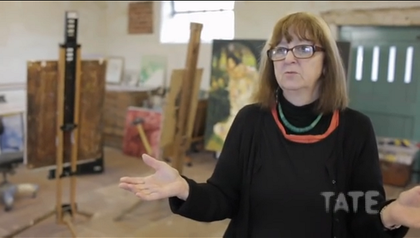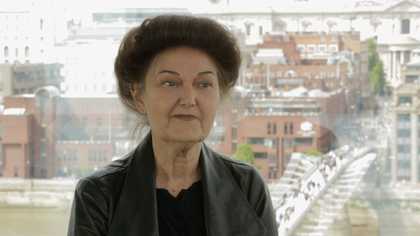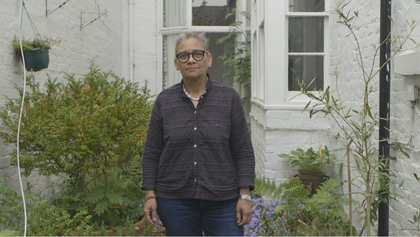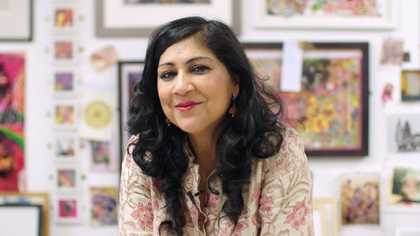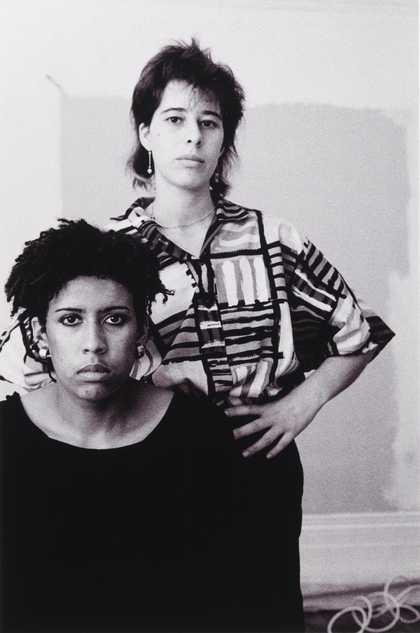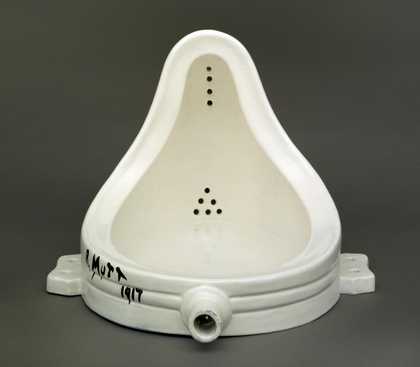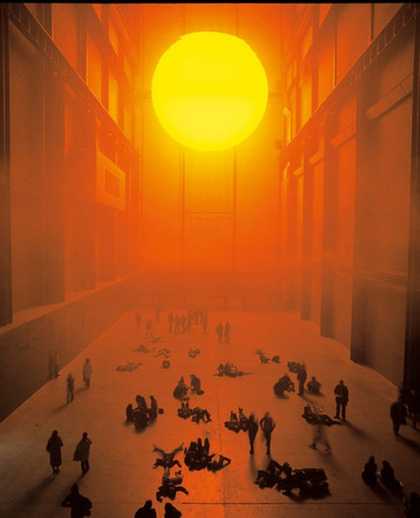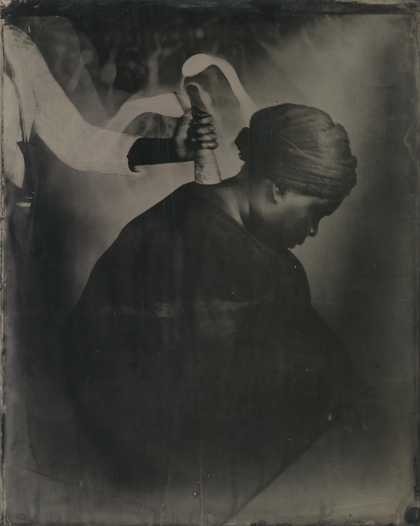This 6-part mini-series explores art, activism and the women's movement in the UK in the 1970s and 80s. From early struggles for equal pay, to punk, Thatcher and the AIDS pandemic, this was a time of extreme social, economic and political change.
Join curator Linsey Young, as she hears from artists, makers and activists about how their radical ideas and rebellious methods changed the face of British culture and forged a path for future generations.
New episodes are released every Monday from 6 November – 11 December 2023.
Trailer
Episode One: Ferocious and Magnificent
Curator Linsey Young journeys to the start of the Women's Liberation Movement and hears from women who were making work in the early 1970s.
Joined by artists, makers and activists, she explores how this generation came together to demand change and create new spaces to share their art.
From flour bombs to fly-posted propaganda, gallery installations to crocheted postal art, these women and their work forged a path for future generations.
Featuring Margaret Harrison, members of See Red Women’s Workshop (Pru Stevenson, Suzy Mackie and Anne Robinson), Su Richardson and Stella Dadzie.
Artworks explored in this episode:
- See Red Women's Workshop Protest 1974
- See Red Women's Workshop 7 Demands 1974
- Su Richardson Bear it in Mind 1976
- Margaret Harrison Homeworkers 1977
- Margaret Harrison Good Enough to Eat 1971
- Margaret Harrison Take One Lemon 1971
- Margaret Harrison, Kay Hunt, Mary Kelly Women & Work: A Document on the Division of Labour in Industry 1973-75 (1973–5)
Images of Artworks Explored in Episode One

Margaret Harrison
Good Enough to Eat (1971)
Tate

Margaret Harrison
Take One Lemon (1971)
Tate
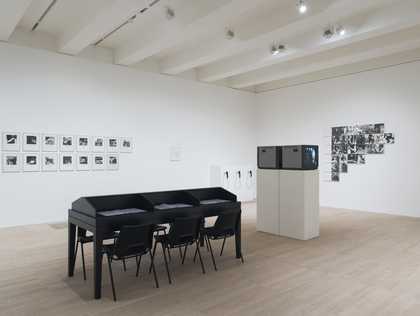
Margaret Harrison, Kay Hunt, Mary Kelly
Women & Work: A Document on the Division of Labour in Industry 1973-75 (1973–5)
Tate

Margaret Harrison
Homeworkers (1977)
Tate

Su Richardson
Bear it in Mind (1976)
Tate
Episode two: There’s something not right here
In this episode, curator Linsey Young hears from women who were making work in the 1970s that commented on their roles in the family and in the home. From performing as a pregnant bunny girl in a cage at an agricultural show, to baking a life-sized family in a mobile home, their wildly original work received no attention in the art press.
She also uncovers the origins of the Women’s Art Library in the late 1970s, when art history was almost exclusively male, and contemporary women artists faced an extremely challenging environment.
Featuring Su Richardson, members of See Red Women’s Workshop (Pru Stevenson, Suzy Mackie and Anne Robinson), Shirley Cameron, Bobby Baker, Gee Vaucher and Felicity Allen.
Artworks explored in this episode:
- Shirley Cameron Rabbits - the Pregnant Bunny Girl, Mrs Rabbits and Woman as Animal 1974
- Gee Vaucher International Anthem no.2 Domestic Violence 1975
- Bobby Baker An Edible Family in a Mobile Home 1976
Experience a 2023 replica of Bobby Baker’s An Edible Family in a Mobile Home at Tate Britain 8 November – 3 December 2023 and 8 March – 8 April 2024.
Images of Artworks Explored in Episode Two
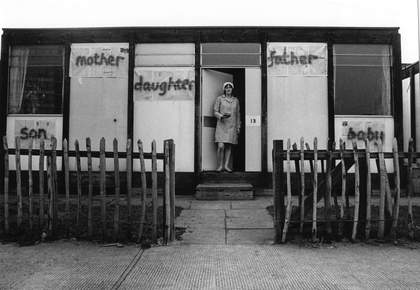
Bobby Baker, An Edible Family in a Mobile Home, 1976. Documented by Andrew Whittuck

Press photo of An Edible Family in a Mobile Home by Bobby Baker, 1976, for the Stratford Express.

Documentation of preparation for An Edible Family in a Mobile Home by Bobby Baker, 1976. Photo: Andrew Whittuck
Episode three: Transgression
In episode three, curator Linsey Young investigates how the independent music scene of the late 1970s and early 1980s liberated women from the expectations of the time.
Joined by artists, musicians, writers and activists, she discovers how punk and industrial music created a space for women to express themselves on their own terms.
From self-publishing fanzines and forming all-women bands, to creating art in response to sex-work, they challenged ideas about what a woman should be, and explored issues of sexuality, power and control.
Featuring Gina Birch, Caroline Coon, Lucy Whitman and Cosey Fanni Tutti.
Artworks explored in this episode:
- Caroline Coon Between Parades 1985
- Lucy Whitman Artwork for cover of 'JOLT', no. 1 1977
- Lucy Whitman 'JOLT', no. 3, featuring a drawing by Rosalind Whitman (after Le Courbet) August 1977
Please note, this episode contains references to self harm at 03:35 – 04:10, sexual assault and rape at 10:44 – 11:21 and 41:10 – 43:00, racist violence at 13:43 – 14:50 and sex work at 29:05 – 43:50.
Images of Artworks Explored in Episode Three
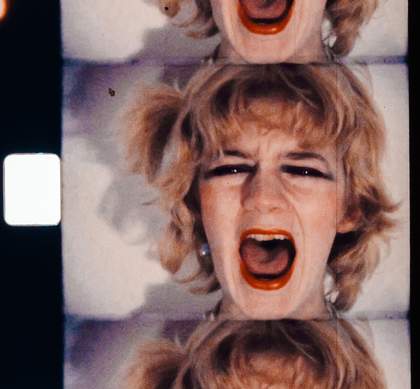
Gina Birch 3 Minute Scream 1977 © Gina Birch
Episode Four: “We need to change the course!”
In episodes four and five, curator Linsey Young hears from women activists and artists of colour about their experiences and work in the 1970s and 80s.
In this episode, she learns about how women mobilised against racism and discrimination, and how artists challenged how art history was being taught.
From involving lecturers in performances that challenged the Euro-centricity of art history to creating installations celebrating women artists of colour, they demanded greater visibility and opened up conversations about race, gender and colonialism in art.
Featuring Nina Edge, Stella Dadzie, Sutapa Biswas and Marlene Smith.
Artworks explored in this episode:
- Stella Dadzie Motherland c.1984
- Sutapa Biswas Kali 1983–1985
- Marlene Smith Art History 1987
Please note, this episode contains references to police violence at 21:13 – 22:00.
Images of Artworks Explored in Episode Four

Sutapa Biswas
Kali (1983–1985)
Tate
Episode five: A Time of Possibility
In episode five, curator Linsey Young finds out about group exhibitions by women of colour in the 1980s.
Joined by artists and curators, she explores how their shows made women of colour visible and expressed the politics and realities of their experiences.
From ‘CopyArt’ based on photographic self-portraits, to a giant avenging hindu goddess Kali, their work challenged stereotypes and was variously celebratory, sorrowful, satirical and urgent.
Featuring Marlene Smith, Rita Keegan, Sutapa Biswas and Nina Edge.
Artworks explored in this episode:
- Rita Keegan Love, Sex and Romance 1984
- Marlene Smith Good Housekeeping III 1985
- Sutapa Biswas Housewives with Steak-knives 1985
- Nina Edge Snakes and Ladders 1985
Please note, this episode contains references to police violence at 14:28 – 19:30 and hate speech at 28:42 – 29:18.
Images of Artworks Explored in Episode Five

Rita Keegan
Love, Sex and Romance (1984)
Tate
Episode Six: Tough!
In our final episode, curator Linsey Young hears from women artists, photographers, film-makers and activists who were responding to the political upheavals in the 1980s.
From photographs of protests such as the Greenham women’s peace camps to films about AIDS and racist attacks, their work documented and commented on the intense struggles and conflicts of the time.
Linsey also finds out how the changing political landscape impacted on women’s ability to make and show political work.
Featuring Pru Stevenson of See Red Women’s Workshop, Roshini Kempadoo, Loraine Leeson, Rita Keegan, Pratibha Parmar, Sutapa Biswas and Marlene Smith.
Artworks explored in this episode:
- Roshini Kempadoo My Daughter's Mind 1984–1985
- Roshini Kempadoo [Untitled] from the series Presence 1990
- Pratibha Parmar Reframing AIDS 1987
- Pratibha Parmar Sari Red 1988
Please note, this episode contains references to hate speech at 30:40 – 32:40 and racist attacks at 32:40 – 36:00.
Credits

The Women in Revolt! podcast series was made possible by the generous support of Lubaina Himid and shortlisted for the International Women's Podcast Award 2024.
Concept by Linsey Young. Research, interviews, recording, editing and production by Rosie Oliver for Tickertape Productions. Sound by Chris Maclean. Music from White Mice by Mo-dettes.

